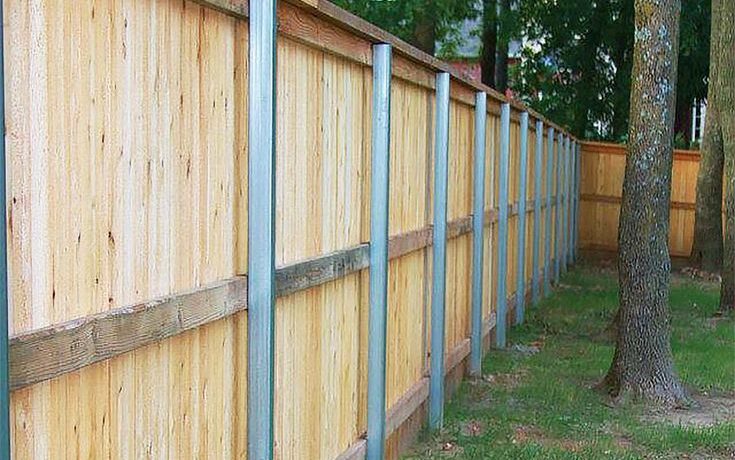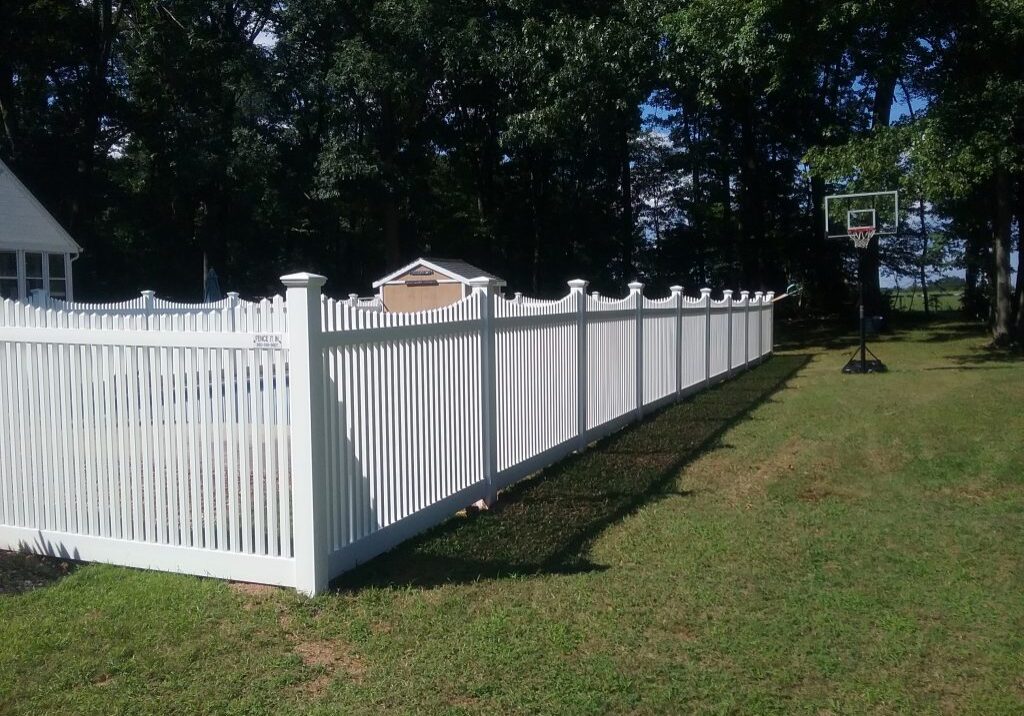All Categories
Featured
When you determine to set up a fencing around your house, it's necessary to comprehend the license requirements specific to your location. While setting up a fence can feel like a straightforward home improvement job, neighborhood regulations and regulations should be followed to ensure the installment is compliant and legal. Stopping working to secure the proper authorizations can result in fines and even need you to remove the fence. Below's an extensive take a look at the authorizations you may require for fence setup.
Why Do You Required an Authorization for Fence Setup? A fencing is greater than simply a barrier in between buildings-- it can impact safety and security, residential property value, aesthetic appeals, and also environmental problems. City governments call for licenses to guarantee that fences fulfill certain requirements and do not trigger issues for utilities, neighbors, or the community in its entirety. Licenses additionally make sure that the installation follows zoning legislations, constructing codes, and security laws.
![]()
Kinds of Authorizations You May Require. Building Authorization. A building permit is among the most typical authorizations required for fencing installment. This permit makes certain that the fence fulfills neighborhood building regulations. For instance, if you're constructing a fence over a specific elevation (commonly over 6 feet), you'll likely need a structure permit. The regional structure department will usually assess the website and review plans to guarantee the structure is secure and does not block public spaces or develop risks.
Zoning Authorization. A zoning license guarantees your fencing conforms with obstacle, elevation, and location policies. Fences might need to be established back a specific range from pathways, roads, or residential property lines to prevent blockage or interference with energies.
HOA Approval. If your building becomes part of a homeowners association (HOA), you might require to look for approval before setting up a fencing. HOAs normally have standards that govern the appearances and framework of fencings to ensure they agree with the area. You could require to send your prepare for authorization, and the HOA may restrict fencing material, height, or style.
Specialized Permits. In some locations, there might be additional permits required for specific situations. If your fencing is near a protected ecological area or situated in a flood zone, you may need to get specialty permits connected to ecological impact. Likewise, if the fence is in a location with below ground energies, you may require to get clearance to stay clear of damaging pipelines or cables.
![]()
Easement or Utility Company Approval. Prior to setting up a fence, it's vital to examine whether the residential or commercial property consists of an easement, such as an utility easement, which could affect where you can put your fence. Easements are areas of land assigned for public or exclusive utilities, and you might require consent from the utility company or other authority to build within this location.
How to Locate Out What Permits You Required. To make sure that you're adhering to all the essential policies, right here's how you can figure out the details authorizations needed for your fencing installation:
![]()
Visit Your Regional Government Workplace: The primary step is to get in touch with your neighborhood building or zoning department. Numerous cities and areas have standards readily available online that specify what types of authorizations are needed for fence setup. Otherwise, calling or seeing the workplace in person can assist clarify the procedure. Inspect Your City's Website: Many communities give details concerning fencing setups and the licenses required with their official internet sites. Some sites also allow you to submit applications on the internet. Get In Touch With a Fence Setup Professional: If you're not certain concerning neighborhood regulations, an expert fence service provider can help. They know with the allowing procedure and can direct you via the steps. The Repercussions of Not Getting a Permit. Stopping working to safeguard the essential licenses prior to installing a fencing can result in substantial effects. You might be fined or needed to eliminate the fence totally.
Conclusion. Setting up a fencing around your home can include both safety and security and aesthetic allure, however it is very important to guarantee you're following the lawful steps in the procedure. Looking into the specific permit requirements for your location, consisting of building permits, zoning laws, HOA authorization, and utility permissions, will certainly help ensure your fencing setup goes efficiently. Taking the time to understand these demands now can save you from pricey errors and prospective lawful issues down the line.
Why Do You Required an Authorization for Fence Setup? A fencing is greater than simply a barrier in between buildings-- it can impact safety and security, residential property value, aesthetic appeals, and also environmental problems. City governments call for licenses to guarantee that fences fulfill certain requirements and do not trigger issues for utilities, neighbors, or the community in its entirety. Licenses additionally make sure that the installation follows zoning legislations, constructing codes, and security laws.

Kinds of Authorizations You May Require. Building Authorization. A building permit is among the most typical authorizations required for fencing installment. This permit makes certain that the fence fulfills neighborhood building regulations. For instance, if you're constructing a fence over a specific elevation (commonly over 6 feet), you'll likely need a structure permit. The regional structure department will usually assess the website and review plans to guarantee the structure is secure and does not block public spaces or develop risks.
Zoning Authorization. A zoning license guarantees your fencing conforms with obstacle, elevation, and location policies. Fences might need to be established back a specific range from pathways, roads, or residential property lines to prevent blockage or interference with energies.
HOA Approval. If your building becomes part of a homeowners association (HOA), you might require to look for approval before setting up a fencing. HOAs normally have standards that govern the appearances and framework of fencings to ensure they agree with the area. You could require to send your prepare for authorization, and the HOA may restrict fencing material, height, or style.
Specialized Permits. In some locations, there might be additional permits required for specific situations. If your fencing is near a protected ecological area or situated in a flood zone, you may need to get specialty permits connected to ecological impact. Likewise, if the fence is in a location with below ground energies, you may require to get clearance to stay clear of damaging pipelines or cables.

Easement or Utility Company Approval. Prior to setting up a fence, it's vital to examine whether the residential or commercial property consists of an easement, such as an utility easement, which could affect where you can put your fence. Easements are areas of land assigned for public or exclusive utilities, and you might require consent from the utility company or other authority to build within this location.
How to Locate Out What Permits You Required. To make sure that you're adhering to all the essential policies, right here's how you can figure out the details authorizations needed for your fencing installation:

Visit Your Regional Government Workplace: The primary step is to get in touch with your neighborhood building or zoning department. Numerous cities and areas have standards readily available online that specify what types of authorizations are needed for fence setup. Otherwise, calling or seeing the workplace in person can assist clarify the procedure. Inspect Your City's Website: Many communities give details concerning fencing setups and the licenses required with their official internet sites. Some sites also allow you to submit applications on the internet. Get In Touch With a Fence Setup Professional: If you're not certain concerning neighborhood regulations, an expert fence service provider can help. They know with the allowing procedure and can direct you via the steps. The Repercussions of Not Getting a Permit. Stopping working to safeguard the essential licenses prior to installing a fencing can result in substantial effects. You might be fined or needed to eliminate the fence totally.
Conclusion. Setting up a fencing around your home can include both safety and security and aesthetic allure, however it is very important to guarantee you're following the lawful steps in the procedure. Looking into the specific permit requirements for your location, consisting of building permits, zoning laws, HOA authorization, and utility permissions, will certainly help ensure your fencing setup goes efficiently. Taking the time to understand these demands now can save you from pricey errors and prospective lawful issues down the line.
Latest Posts
Enhance Your Home's Outside with Weathercraft's Siding Solutions
Published May 13, 25
1 min read
Chill, Sip, and Enjoy at Shake Alley
Published May 13, 25
1 min read
Find the Best Auto Repair Deals in Montclare, Chicago
Published May 13, 25
1 min read